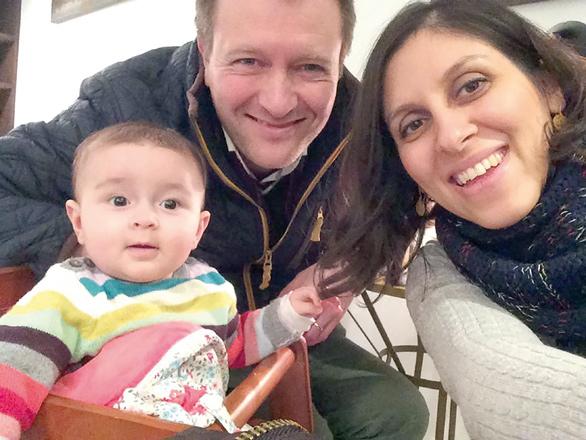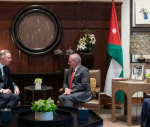You are here
Iran announces indictments for 3 dual nationals, foreigner
By AP - Jul 11,2016 - Last updated at Jul 11,2016
TEHRAN, Iran — Iran announced on Monday that three dual nationals and a foreigner held in the country have been indicted on unknown charges, part of a series of detentions in the wake of last year’s nuclear deal with world powers.
The four, who have ties to Britain, Canada and the United States, all are believed to have been detained by hard-liners in Iran’s paramilitary Revolutionary Guard.
The reasons for their arrests remain unclear, though the husband of one of them says his family was told by the Guard that she would be released if the British government agreed to their demands.
Iran’s official judiciary news agency Mizan quoted Tehran’s prosecutor, Abbas Jafari Dowlatabadi, naming the four charged as:
Homa Hoodfar, an Iranian-Canadian woman who is a retired professor at Montreal’s Concordia University;
Siamak Namazi , an Iranian-American businessman who has advocated for closer ties between the two countries and whose father is also held in Tehran; Nazanin Zaghari-Ratcliffe, an Iranian-British woman who works for the Thomson Reuters Foundation, the charitable arm of the news agency; and Nizar Zakka, a US permanent resident from Lebanon who has done work for the American government .
The four were arrested in connection with separate cases over the past year. Family members and representatives of the four say they did nothing wrong.
Dowlatabadi’s statement did not elaborate on the charges, though Iranian media previously accused Zaghari-Ratcliffe of plotting a “soft toppling” of the government and alleged that Zakka was a spy. He said another seven people faced charges related to the unrest that surrounded the country’s disputed 2009 presidential election.
Iran does not recognise dual nationalities, meaning those detained cannot receive consular assistance. In previous cases involving dual nationals, like the detention of Washington Post journalist Jason Rezaian, officials initially announced indictments had been handed down without providing specifics. Later, news organisations with close ties to security services offered details of the charges.
Those detained typically face trial in Iran’s Revolutionary Court, a closed-door tribunal which handles cases involving alleged attempts to overthrow the government. Rezaian was convicted but later released in January as part of a prisoner swap between Iran and the US.
While Iranian officials have not publicly demanded another swap, analysts have suggested the detainees might be used by hard-liners as bargaining chips. Richard Ratcliffe, the husband of Zaghari-Ratcliffe, said as much in a statement to journalists Monday marking the 100th day of his wife’s detention.
Ratcliffe said the Guard told his wife’s family she would be released as long as the British government reached “an agreement” with them. He said they did not elaborate, other than to say it did not involve the recent nuclear deal, which lifted economic sanctions on Iran in exchange for it limiting its atomic programme.
His toddler daughter, Gabriella, also remains in Iran, as authorities seized her passport.
“That the Iranian authorities are willing to hold a mother and baby hostage for domestic politics and as a bargaining chip in their international negotiations shows that they have reached a very dark place,” Ratcliffe said.
Monday’s announcement did not include any mention of Namazi’s father, Baquer Namazi, a former Iranian and UN official in his 80s who is also detained. Also unaccounted for is former FBI agent Robert Levinson, who vanished in Iran in 2007 while on an unauthorised CIA mission.
Iranian officials in Tehran could not be reached for comment Monday. Iran’s mission to the United Nations did not immediately respond to a request for comment. However, Iran’s judiciary spokesman Gholam Hossein Mohseni Ejehi suggested in April that the two Namazis could be traded for Ahmad Sheikhzadeh, an Iranian consultant to the UN held in the US on suspicion of tax and money laundering charges for helping violate sanctions.
The hard-line crackdown since the nuclear accord has included the detention and sentencing of Iranian poets, filmmakers, artists and others. Most recently, famed Iranian sculptor Parviz Tanavoli found himself banned from traveling abroad and had his passport seized.
On Monday, Tanavoli told The Associated Press that police had received a complaint alleging that his work was “disturbing public opinion” and “spreading lies”. The sculptor called the complaint “baseless” and said his lawyer would fight against his travel ban, which prevented him from giving lectures in London.
Related Articles
TEHRAN — Iran on Tuesday told Nazanin Zaghari-Ratcliffe, a British-Iranian woman detained in Tehran that she faces a new indictment, dampeni
BEIRUT — An Iranian-American detained in Iran since last summer has been released on bail of approximately $60,000, the Human Rights Activis
LONDON — The release of Nazanin Zaghari-Ratcliffe, a UK-Iraninan dual national held in Tehran, could be in doubt, her husband told the BBC o















